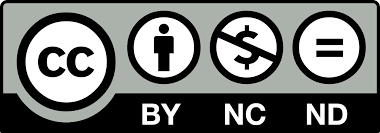Managing an Enterprise and Ethical Dilemmas in Accountancy
Jolanta Wiśniewska
Department of Accountancy, Nicolaus Copernicus University in TorunResumen
The purpose of this article is to present the correlation between management of an economic entity and the development of ethical accounting dilemmas in the era of high-risk business. In the globalisation era and recurring economic crises, realisation of the objectives of a company takes place under high risk conditions. It is therefore necessary to use a proper management system. The necessary condition for making all decisions is to have relevant information. The value and relevance of these decisions depend on the quality of information which they have been based on. Lack of ethics in accounting has a direct impact on the company's management, which is based on information generated by the accounting system of the company. Ethical dilemmas arising in accounting are also ethical dilemmas arising in the process of business management.
Palabras clave:
ethics, accounting, financial reporting, management, conflict of interest, ethical dilemmasCitas
Brooks M.J. 1988. ED42 - czy to koniec twórczej księgowości? In: Wprowadzenie do etyki biznesu. Eds. G.D. Chryssides. J.H. Kaler. PWN, Warszawa, p. 381.
European fraud survey 2009 Is integrity a casualty of the downturn? 2009. Ernst&Young. http://www.blog.ey.pl/audytsledczy/badania-naduzyc- gospodarczych/ (access: 2014.01.20).
European fraud survey 2011 Recovery, regulation and integrity. 2011. Ernst&Young. http://www.blog.ey.pl/audytsledczy/badania-naduzyc-gospodarczych/ (access: 2014.01.20).
Gasparski W. 2010. Dylematy etyków biznesu. http://cebi.pl/new/pl/badania/artykuly-i-referaty/dylematy-etykow-biznesu.html (access: 2010.12.10).
Griffin R. W. 2005. Podstawy zarządzania organizacjami. Wydawnictwo Naukowe PWN, Warszawa, p. 6.
Hołda A., Nowak W. 2003. Oszustwa w systemie rachunkowości a ewolucja procedur badania sprawozdań finansowych. Zeszyty Teoretyczne Rachunkowości, nr spec., 13(69): 126.
Kuhlmann G. 1994. Bilanztheorie - Bilanzpolitik - Sonderbilanzen. Universität Rostock, p. 47.
Lewicka-Strzałecka A. 2001. Poznawczy model kształcenia etycznego: studium przypadku. In: Etyka biznesu jako przedmiot nauczania. Eds. W. Gasparski, A. Lewicka-Strzałecka. Wyższa Szkoła Przedsiębiorczości i Zarządzania, Warszawa, p. 126.
Lewicka-Strzałecka A. 2014. Teoretyczne i praktyczne aspekty identyfikacji i ograniczania konfliktów interesów. ftp://ftp.wsap.edu.pl/Biblioteka-@ntykorupcyjna/A.%20Lewicka-Strzalecka%20-%20 Konflikt%20interesow.pdf (access: 2014.01.10).
Nowak E. 2009. Zaawansowana rachunkowość zarządcza. PWE, Warszawa, p. 28.
Piłat K. 2006. Księgowi zwykle mylą się na korzyść przedsiębiorcy. Rzeczpospolita, 06.08.
SAS No 99 - Consideration of Fraud in a Financial Statement Audit, AICPA, USA. 2007, http://www.aicpa.org/Research/Standards/AuditAttest/DownloadableDocuments/AU-00316.pdf (access: 2014.01.10).
Schneider K. 1988. Fałszowanie bilansów. Serwis Finansowo-Księgowy, 23: 16.
Schneider K. 2007. Błędy i oszustwa w dokumentach finansowo-księgowych. PWE, Warszawa, p. 239.
Skrzywan S. 1948. Rachunkowość w przedsiębiorstwie przy gospodarce planowej. Cele i funkcje. GIW, Warszawa, p. 11.
Surdykowska S. T. 2012. Ryzyko finansowe w środowisku globalnej gospodarki, kulisy najbardziej spektakularnych afer finansowych ostatnich lat. Difin, Warszawa, p. 186-192, 207.
Śnieżek E., Wiatr M. 2004. Kreatywna polityka rachunkowości. Studium przypadku na przykładzie amortyzacji. Monitor Rachunkowości i Finansów, 2: 8.
Wiśniewska J. 2005. Skutki kreatywnej sprawozdawczości finansowej. Serwis F-K, 37 (543).
Department of Accountancy, Nicolaus Copernicus University in Torun
Licencia
An Author declares that his paper has not been published before (under the same or another title, or is a part of another publication) and does not infringe copyrights of other persons**. At the same time, the Author transfers to the Publisher the exclusive right to publish and to circulate this work in print in the form of a non-serial journal publication and in a form of an electronic publication.
The journal is available on Creative Common license CC-BY-NC-ND






